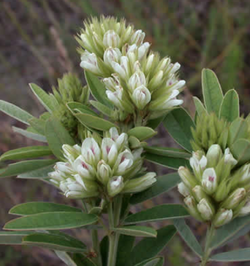 Lespedeza capitata, bush clover Lespedeza capitata, bush clover We can think of at least 180 great forest garden & perennial crops for cold climate Sweden. Want to hear about them? Over the course of the next year we will profile 5 a week on the blog. Perennial plants and crops offer a low energy, oil & resource input based foundation for future-proof agricultures. By default if an agriculture is to be called regenerative the bottom line is that it must be soil building, not soil depleting. Relentless deep tillage & poor soil husbandry (wifery?!) contributes to the majority of the 24 billion tons of topsoil lost every year on planet water. We are going to be focused on holistic polyculture grazing and perennial production at ridgedale over most of the site as this represents the most effective way to restore our degraded landscape, produce high value produce and ensure the future resource base we are managing holistically for in our decision making.
0 Comments
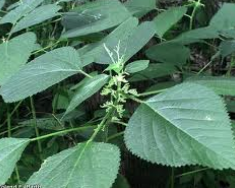 Laportaea canadensis, wood nettle Laportaea canadensis, wood nettle We can think of at least 180 great forest garden & perennial crops for cold climate Sweden. Want to hear about them? Over the course of the next year we will profile 5 a week on the blog. Perennial plants and crops offer a low energy, oil & resource input based foundation for future-proof agricultures. By default if an agriculture is to be called regenerative the bottom line is that it must be soil building, not soil depleting. Relentless deep tillage & poor soil husbandry (wifery?!) contributes to the majority of the 24 billion tons of topsoil lost every year on planet water. We are going to be focused on holistic polyculture grazing and perennial production at ridgedale over most of the site as this represents the most effective way to restore our degraded landscape, produce high value produce and ensure the future resource base we are managing holistically for in our decision making. 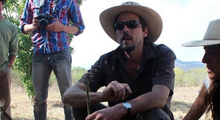 The Core Team are gathering at Ridgedale shortly for our busy first season at the farm. We're breaking ground on Scandinavia's first dedicated Permaculture & Regenerative Agriculture farm & edu site. We're establishing a pasture and perennial crop based beyond-organic local food system at 59°N, one of the northern most projects of this ilk on the planet, and the first Keyline designed farm in the region. We previously advertised this role, and had a bunch of great applications, but our vision was too broad and we did not really know which direction would be most beneficial to take this in.... 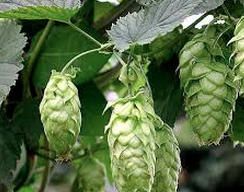 Humulus lupulus, Hops Humulus lupulus, Hops We can think of at least 180 great forest garden & perennial crops for cold climate Sweden. Want to hear about them? Over the course of the next year we will profile 5 a week on the blog. Perennial plants and crops offer a low energy, oil & resource input based foundation for future-proof agricultures. By default if an agriculture is to be called regenerative the bottom line is that it must be soil building, not soil depleting. Relentless deep tillage & poor soil husbandry (wifery?!) contributes to the majority of the 24 billion tons of topsoil lost every year on planet water. We are going to be focused on holistic polyculture grazing and perennial production at ridgedale over most of the site as this represents the most effective way to restore our degraded landscape, produce high value produce and ensure the future resource base we are managing holistically for in our decision making. 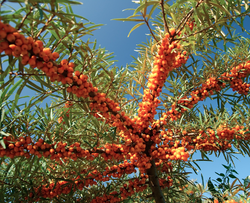 Hippophae rhamnoides, Sea Buckthorn Hippophae rhamnoides, Sea Buckthorn We can think of at least 180 great forest garden & perennial crops for cold climate Sweden. Want to hear about them? Over the course of the next year we will profile 5 a week on the blog. Perennial plants and crops offer a low energy, oil & resource input based foundation for future-proof agricultures. By default if an agriculture is to be called regenerative the bottom line is that it must be soil building, not soil depleting. Relentless deep tillage & poor soil husbandry (wifery?!) contributes to the majority of the 24 billion tons of topsoil lost every year on planet water. We are going to be focused on holistic polyculture grazing and perennial production at ridgedale over most of the site as this represents the most effective way to restore our degraded landscape, produce high value produce and ensure the future resource base we are managing holistically for in our decision making. 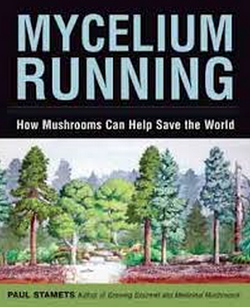 Want a free awesome book? Want a free awesome book? We have been a little behind with our fortnightly awesome book giveaway and other admin duties. Ridgedale Richard has been working abroad the last couple of months and in the meantime Ridgedale Yohanna has been organizing and managing the spring orders and deliveries for Ridgedale. We just ordered 13 species of mushroom sawdust spawn we'll be putting into logs thinned from our dense riparian areas. Lion's Mane (hericium erinaceus), Shiitake (lentinus edodes), Cauliflower (sprassis crispa), King Oyster (pleurotus eryngii), Pioppino (agrocybe aegerita), Enoki (flammulina velutipes), Nameko (pholiota nameko), Pearl Oyster (pleurotus ostreatus), Elm Oyster (hypsizygus ulmarius), Blue Oyster (pleurotus columbinus) , Common Oyster (pleurotus pulmonarius), Tarragon Oyster (pleurotus euosmus) & Branched Oyster (pleurotus cornucopiae). We have plenty of willow, alder & some oak to thin, so we can turn thinnings into high quality food. To celebrate spring around the corner we thought we would give away a copy of Paul Stamets awesome book. Read more for details... 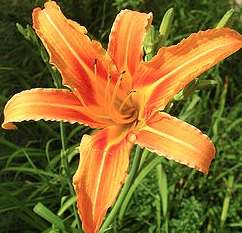 Hemerocallis spp. Day lily Hemerocallis spp. Day lily We can think of at least 180 great forest garden & perennial crops for cold climate Sweden. Want to hear about them? Over the course of the next year we will profile 5 a week on the blog. Perennial plants and crops offer a low energy, oil & resource input based foundation for future-proof agricultures. By default if an agriculture is to be called regenerative the bottom line is that it must be soil building, not soil depleting. Relentless deep tillage & poor soil husbandry (wifery?!) contributes to the majority of the 24 billion tons of topsoil lost every year on planet water. We are going to be focused on holistic polyculture grazing and perennial production at ridgedale over most of the site as this represents the most effective way to restore our degraded landscape, produce high value produce and ensure the future resource base we are managing holistically for in our decision making. 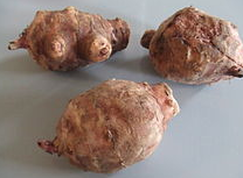 Helianthus tuberosus, Jerusalem Artichoke Helianthus tuberosus, Jerusalem Artichoke We can think of at least 180 great forest garden & perennial crops for cold climate Sweden. Want to hear about them? Over the course of the next year we will profile 5 a week on the blog. Perennial plants and crops offer a low energy, oil & resource input based foundation for future-proof agricultures. By default if an agriculture is to be called regenerative the bottom line is that it must be soil building, not soil depleting. Relentless deep tillage & poor soil husbandry (wifery?!) contributes to the majority of the 24 billion tons of topsoil lost every year on planet water. We are going to be focused on holistic polyculture grazing and perennial production at ridgedale over most of the site as this represents the most effective way to restore our degraded landscape, produce high value produce and ensure the future resource base we are managing holistically for in our decision making. 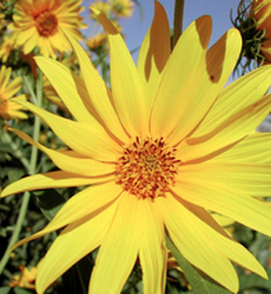 Helianthus maximiliani, Maximilian sunflower Helianthus maximiliani, Maximilian sunflower We can think of at least 180 great forest garden & perennial crops for cold climate Sweden. Want to hear about them? Over the course of the next year we will profile 5 a week on the blog. Perennial plants and crops offer a low energy, oil & resource input based foundation for future-proof agricultures. By default if an agriculture is to be called regenerative the bottom line is that it must be soil building, not soil depleting. Relentless deep tillage & poor soil husbandry (wifery?!) contributes to the majority of the 24 billion tons of topsoil lost every year on planet water. We are going to be focused on holistic polyculture grazing and perennial production at ridgedale over most of the site as this represents the most effective way to restore our degraded landscape, produce high value produce and ensure the future resource base we are managing holistically for in our decision making. 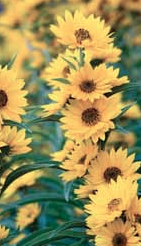 Genus Helianthus Species maximiliani Common Name Maximilian sunflower Form herb Habit running Origin North America Light sun Moisture mesic Edible roots, shoots Nectary Yes A branching perennial herb, growing from a stout rhizome and reaches heights from one half to three meters. The slender, tall, erect stems and alternately-arranged leaves are covered in rough hairs. The lance-shaped leaves are narrow, pointed, folded down the midvein, and up to 30 centimeters long on large plants. The plant reproduces by seed and by vegetative sprouting from the rhizome. The flower heads are surrounded at the base by pointed green phyllaries which often stick straight out and curl at the tips. The center is filled with yellow tipped brown disc florets and the circumference is lined with bright yellow ray florets 2 to 4 centimeters long. Tubers can be eaten raw or cooked. They are similar in flavour to Jerusalem artichokes, but lower yielding. Seed can also be eaten raw or cooked. An edible oil is obtained from the seed. The thick rhizome is edible and provided a food similar to the Jerusalem artichoke for Native American groups such as the Sioux. The flower heads are attractive to insects and the fruits are eaten by birds. The Land Institute, a perennial agriculture research center located in Salina, Kansas, run by Wes Jackson is experimenting with this species to create a perennial oilseed grain crop that does not necessitate replanting each season. OUR FRIENDS AT PFAF HAVE AN AMAZING DATABASE OF SPECIES (UK BASED);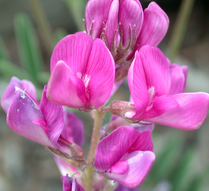 Hedysarum boreale, Sweetvetch Hedysarum boreale, Sweetvetch We can think of at least 180 great forest garden & perennial crops for cold climate Sweden. Want to hear about them? Over the course of the next year we will profile 5 a week on the blog. Perennial plants and crops offer a low energy, oil & resource input based foundation for future-proof agricultures. By default if an agriculture is to be called regenerative the bottom line is that it must be soil building, not soil depleting. Relentless deep tillage & poor soil husbandry (wifery?!) contributes to the majority of the 24 billion tons of topsoil lost every year on planet water. We are going to be focused on holistic polyculture grazing and perennial production at ridgedale over most of the site as this represents the most effective way to restore our degraded landscape, produce high value produce and ensure the future resource base we are managing holistically for in our decision making. 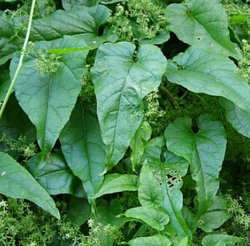 Hablitzia tamnoides, Caucasian spinach Hablitzia tamnoides, Caucasian spinach We can think of at least 180 great forest garden & perennial crops for cold climate Sweden. Want to hear about them? Over the course of the next year we will profile 5 a week on the blog. Perennial plants and crops offer a low energy, oil & resource input based foundation for future-proof agricultures. By default if an agriculture is to be called regenerative the bottom line is that it must be soil building, not soil depleting. Relentless deep tillage & poor soil husbandry (wifery?!) contributes to the majority of the 24 billion tons of topsoil lost every year on planet water. We are going to be focused on holistic polyculture grazing and perennial production at ridgedale over most of the site as this represents the most effective way to restore our degraded landscape, produce high value produce and ensure the future resource base we are managing holistically for in our decision making. |
Details
Like us on FB Below for regular updatesStay up to date with customized updates you want to receive
Upcoming coursesArchives
December 2016
Categories
All
|

 RSS Feed
RSS Feed